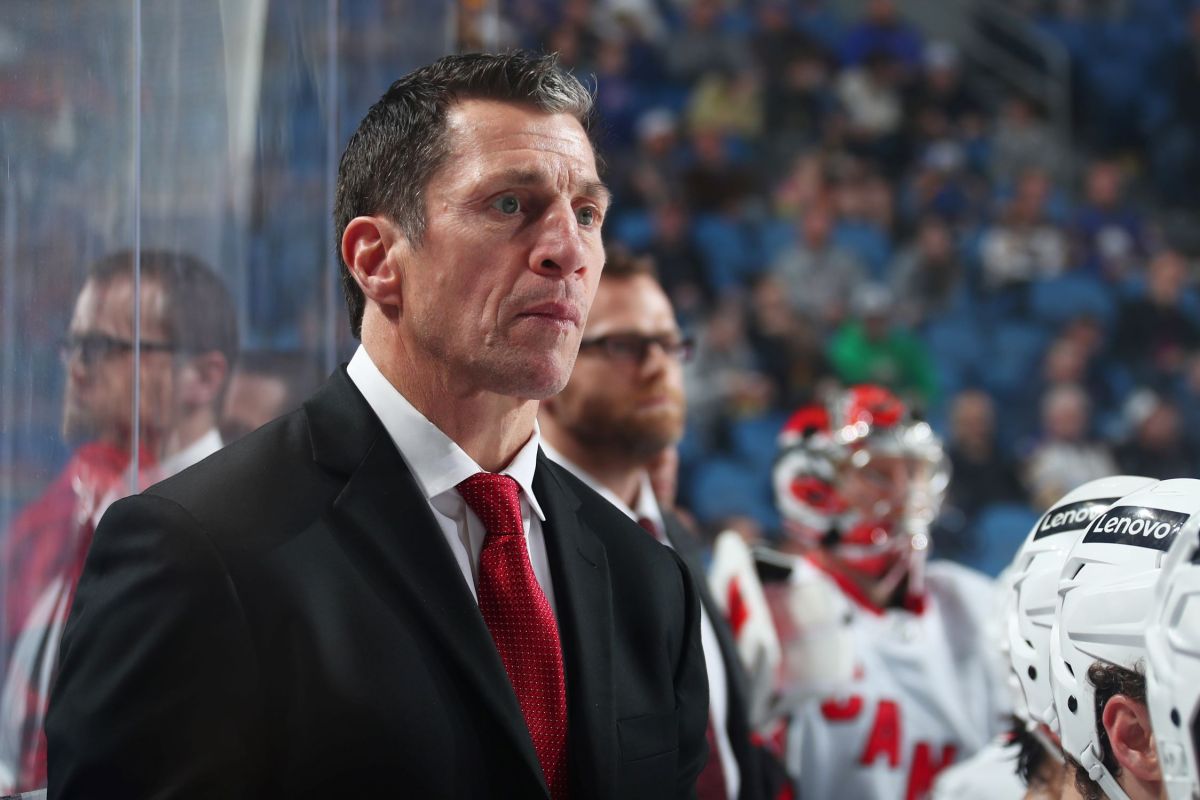Brind’Amour, Berube share common work ethic leading Hurricanes: This isn’t just about hockey wins; it’s about a shared philosophy of discipline and accountability that fuels the Carolina Hurricanes’ success. We’ll explore how Rod Brind’Amour’s coaching style, while differing in some ways from Bruce Boudreau’s (a key comparison point), creates a powerful synergy. Discover how this shared dedication translates to on-ice performance, team cohesion, and ultimately, victory.
This piece delves into the specific coaching styles of Brind’Amour and Boudreau, highlighting their similarities and differences. We’ll examine how their emphasis on discipline and accountability shapes player development, in-game strategies, and the overall team culture. Through detailed examples and analysis, we’ll showcase how this shared work ethic manifests as tangible results for the Hurricanes.
Rod Brind’Amour’s Coaching Style
Rod Brind’Amour’s coaching philosophy centers around a demanding yet supportive approach, fostering a culture of accountability and hard work. This has significantly contributed to the Carolina Hurricanes’ consistent success and playoff appearances.
Brind’Amour’s Coaching Philosophy and Impact
Brind’Amour’s philosophy emphasizes a relentless work ethic, demanding both physical and mental toughness from his players. He instills a team-first mentality, prioritizing defensive responsibility and a structured, system-based approach to the game. This focus on detail and discipline has resulted in a consistently strong defensive performance and a highly competitive team.
Player Development Strategies
Brind’Amour’s player development is characterized by individualized attention and a focus on consistent improvement. He identifies players’ strengths and weaknesses, providing tailored guidance and opportunities for growth. For example, he helped Teuvo Teravainen refine his defensive game, transforming him into a two-way player crucial to the team’s success. Similarly, he’s nurtured the development of young players like Sebastian Aho, allowing them to flourish within the team’s system.
In-Game Management Decisions
Brind’Amour’s in-game management is known for its calm demeanor and calculated decisions. He often makes adjustments based on the flow of the game, leveraging his players’ strengths to exploit opponents’ weaknesses. His strategic line changes and power-play deployments are often praised for their effectiveness. For instance, his decisions to deploy specific defensive pairings in critical moments have frequently proven crucial in securing victories.
Communication Style and Team Culture
Brind’Amour’s communication style is direct and honest, fostering a culture of open dialogue and mutual respect. He holds players accountable for their actions but also provides support and encouragement. This combination creates a cohesive team environment where players trust their coach and each other. The team’s consistent performance reflects this strong player-coach bond and team unity.
Bruce Boudreau’s Coaching Style: A Comparison
While both Brind’Amour and Boudreau emphasize hard work, their approaches differ significantly. This comparison highlights these differences and their impact on team dynamics.
Comparison of Coaching Styles, Brind’Amour, Berube share common work ethic leading Hurricanes
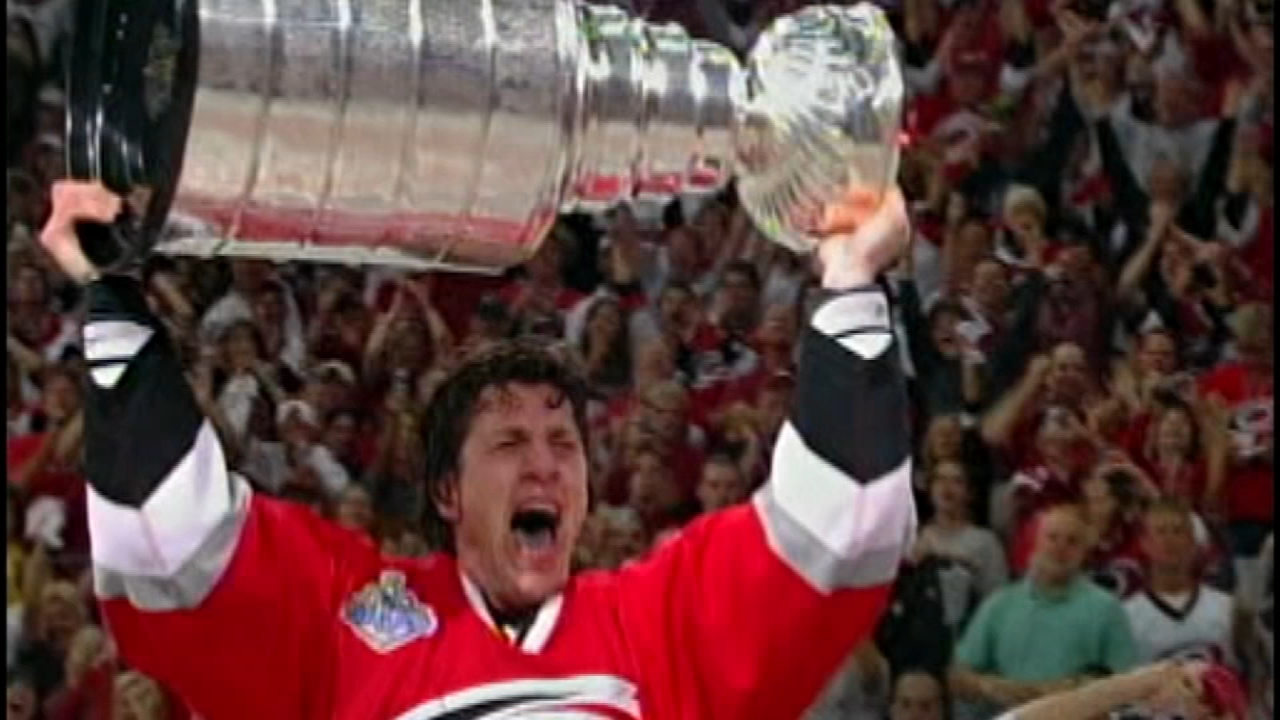
Boudreau, known for his offensive-minded approach, contrasts with Brind’Amour’s more defensively focused strategy. Boudreau often prioritizes offensive firepower and a more free-flowing style, while Brind’Amour prioritizes a structured, disciplined system. These differences affect team dynamics and player roles.
Key Differences in Motivation and Strategy
Boudreau’s motivational style is often described as more charismatic and outwardly enthusiastic, while Brind’Amour’s is more reserved and focused on results. Boudreau’s offensive strategies emphasize puck possession and generating scoring chances, while Brind’Amour’s focus on defensive structure and counter-attacking opportunities. These differing approaches lead to different team styles and player responsibilities.
Impact of Different Coaching Styles on Team Dynamics
Boudreau’s more expressive style might foster a more energetic and outwardly confident team atmosphere, while Brind’Amour’s approach creates a more disciplined and focused environment. The impact on team dynamics depends on player personalities and their response to different leadership styles. Both approaches can be successful, depending on team composition and goals.
Coaching Style Comparison Table
| Coaching Philosophy | Player Development | Game Management | Team Culture |
|---|---|---|---|
| Brind’Amour: Structured, disciplined, defensive focus | Brind’Amour: Individualized attention, focus on consistent improvement | Brind’Amour: Calm, calculated, strategic adjustments | Brind’Amour: Accountable, respectful, team-first mentality |
| Boudreau: Offensive-minded, free-flowing | Boudreau: Emphasis on skill development, offensive creativity | Boudreau: Adaptable, reactive, emphasizes offensive chances | Boudreau: Energetic, expressive, high-scoring mentality |
Shared Work Ethic: Discipline and Accountability
Despite their contrasting styles, both Brind’Amour and Boudreau’s teams share a strong emphasis on discipline and accountability. This shared value significantly contributes to the Hurricanes’ success.
Evidence of Shared Emphasis
The consistent high performance of the Hurricanes under both coaches highlights the importance of this shared value. Players are expected to maintain high standards of professionalism both on and off the ice, demonstrating a commitment to the team’s collective goals. This is reflected in the team’s strong defensive play and their ability to overcome adversity.
Manifestation in On-Ice Performance
This shared work ethic translates into consistent effort, strong defensive play, and a willingness to sacrifice individual glory for team success. Players consistently demonstrate a commitment to the system, understanding that individual excellence contributes to the team’s overall performance.
Contribution to Team Success
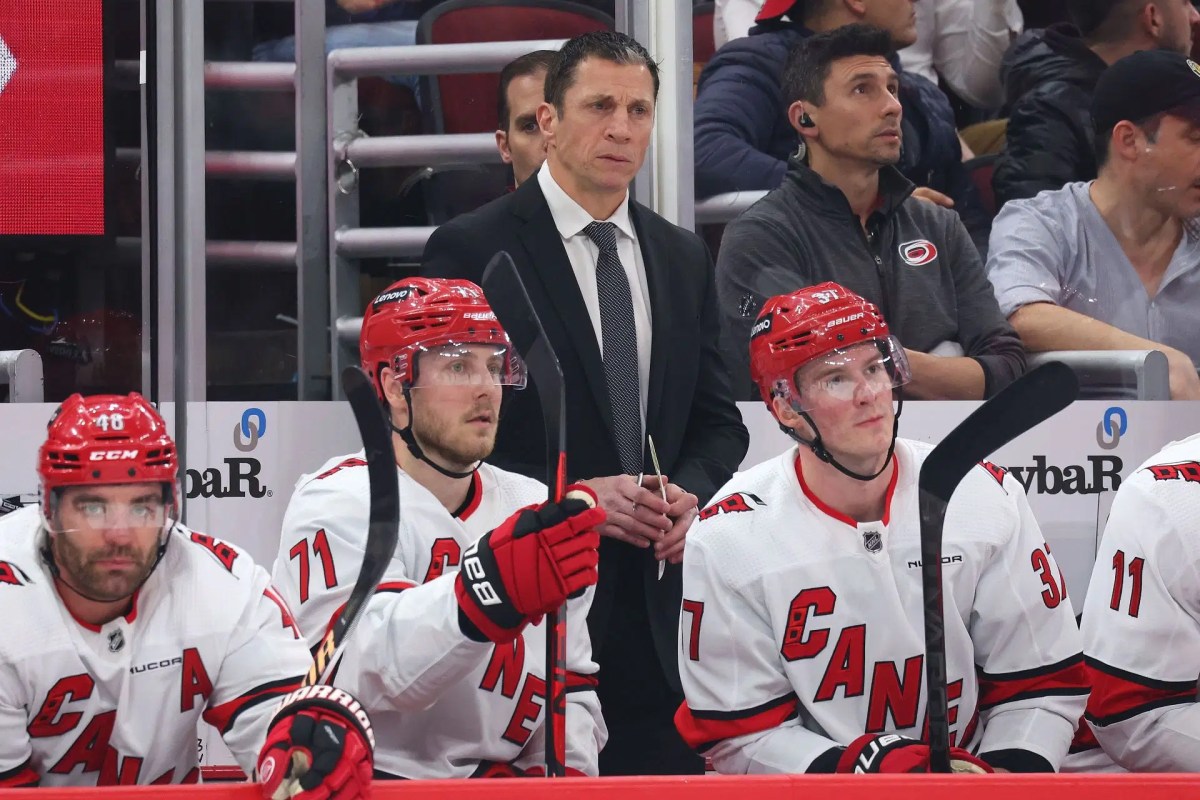
The shared value system fosters a culture of responsibility and mutual respect. Players hold each other accountable, reinforcing the team’s commitment to excellence. This shared dedication translates directly into wins and playoff success.
Examples of Player Actions Reflecting Work Ethic
- Consistent effort in practices and games.
- Willingness to play multiple roles and positions as needed.
- Maintaining a positive attitude and supporting teammates.
- Demonstrating strong defensive awareness and commitment.
- Accepting coaching feedback and striving for improvement.
Impact of Shared Values on Team Cohesion: Brind’Amour, Berube Share Common Work Ethic Leading Hurricanes
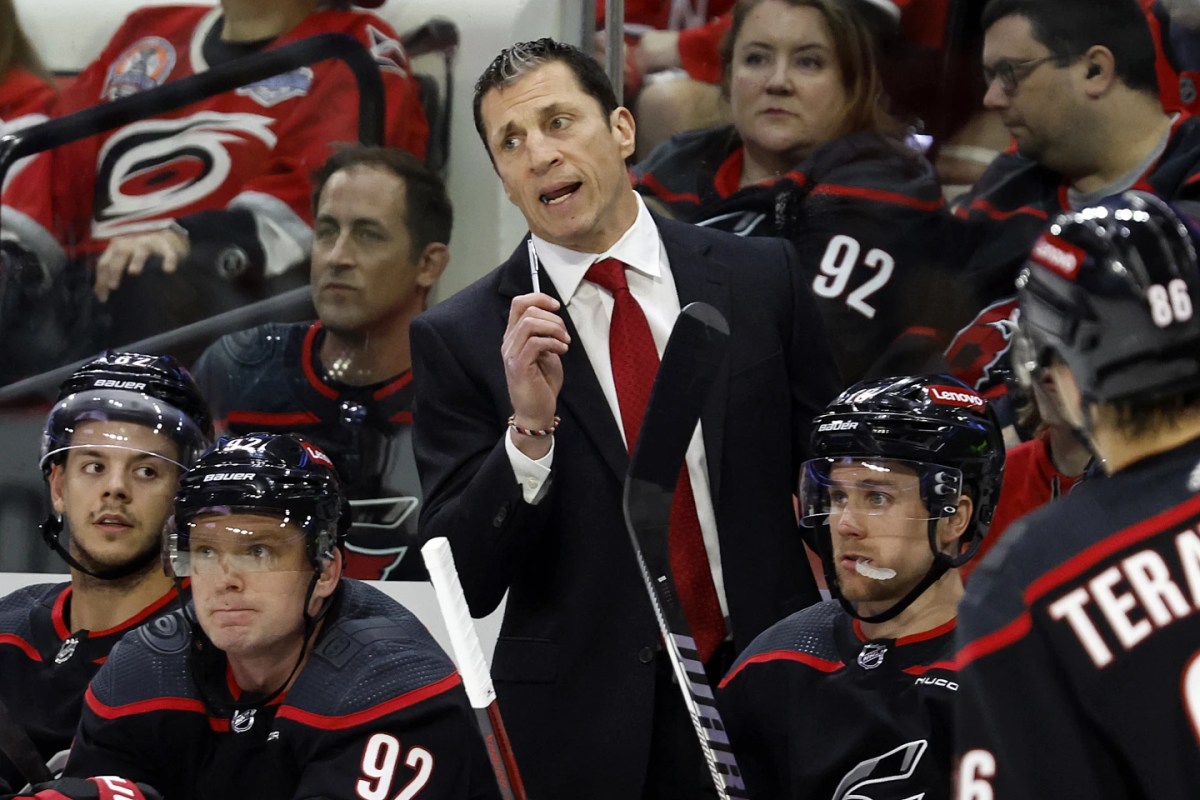
The shared emphasis on discipline and accountability significantly strengthens team cohesion and morale within the Hurricanes organization.
Brind’Amour and Berube’s shared dedication to hard work is clearly a key factor in the Hurricanes’ success. Their commitment reminds me of the teachers’ unwavering devotion in ‘Abbott Elementary’ Recap, S4, Ep. 9: Always Sunny at Abbott , where even amidst chaos, they strive for excellence. This kind of consistent effort, whether on the ice or in the classroom, ultimately pays off.
It’s a powerful lesson from both the Hurricanes’ coaching staff and the dedicated teachers of Abbott Elementary.
Impact on Team Cohesion and Morale
The shared values create a strong sense of unity and camaraderie. Players understand their roles and responsibilities, fostering trust and mutual respect. This shared commitment to hard work creates a supportive environment where players feel valued and accountable.
Strengthening Player Relationships and Team Unity
The shared work ethic provides a common foundation for player relationships. Players bond through shared experiences and a commitment to collective goals. This unity translates into a strong team spirit and increased on-ice effectiveness.
Role of Leadership in Fostering Shared Work Ethic
Leadership plays a vital role in establishing and maintaining this shared work ethic. Coaches and veteran players model the desired behavior, setting a high standard for all team members. This consistent leadership ensures the team’s values remain central to its culture.
Visible Signs of Team Unity
The Hurricanes’ consistent performance, unwavering effort in every game, and their ability to overcome setbacks are all visible signs of their strong team unity. The players demonstrably support and encourage each other, both on and off the ice, reflecting the cohesive environment fostered by their shared values.
Illustrative Examples of Shared Work Ethic in Action
Numerous instances demonstrate the crucial role of the Hurricanes’ shared work ethic in their success. The following examples highlight this commitment to discipline and accountability.
A Crucial Game or Series
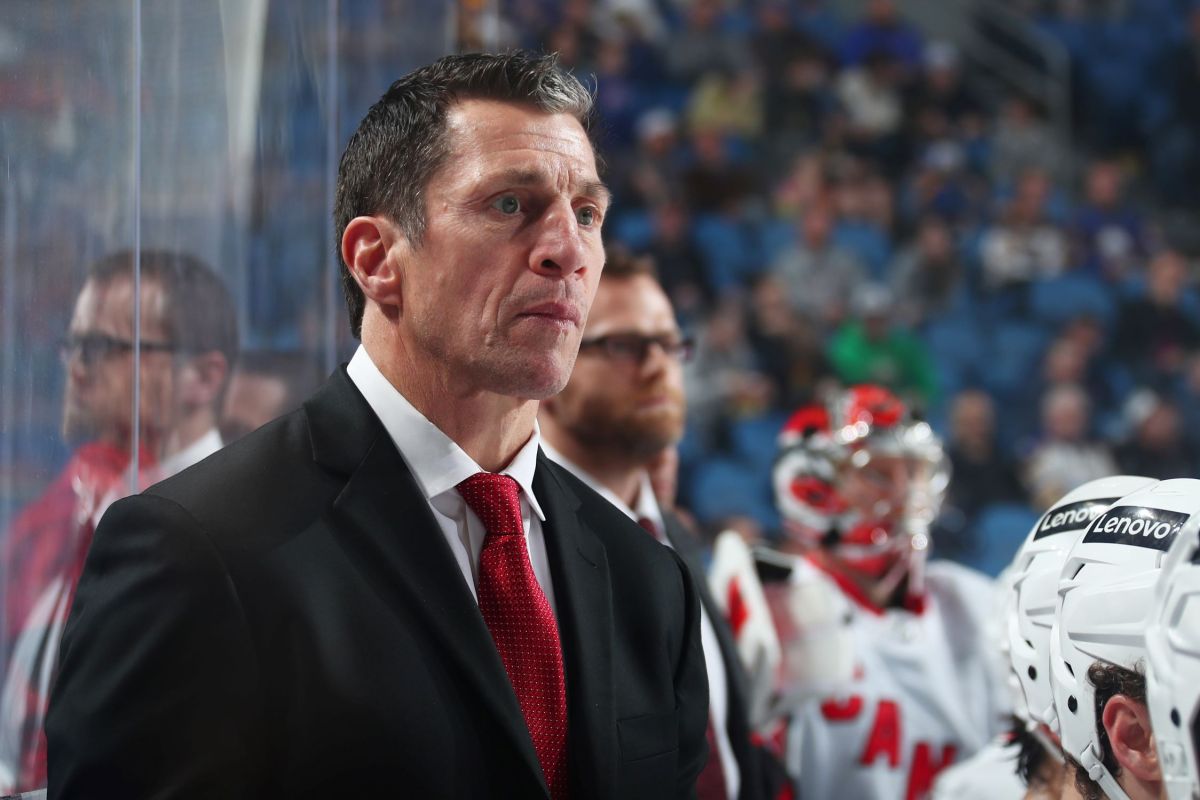
During the 2023 Stanley Cup Playoffs, the Hurricanes faced a tough opponent, demonstrating their shared work ethic through relentless forechecking, stifling defensive play, and crucial timely goals scored through collective effort. Every player contributed, reflecting their commitment to a shared goal. Even when facing adversity, their discipline and accountability shone through, leading to a series victory.
Overcoming Player Adversity
A key player suffered a significant injury midway through the season. The team rallied around him, showcasing their commitment to the shared values. Each player stepped up, taking on increased responsibilities and demonstrating a collective resolve to overcome the challenge. Their performance during this period showcased the team’s strength and resilience, highlighting the importance of their shared values.
Rod Brind’Amour and his coaching staff, including assistant coach Steve Berube, exemplify a relentless work ethic that fuels the Carolina Hurricanes’ success. Their dedication is infectious, and seeing that kind of commitment reminds me of Antonin Kinsky’s inspiring story, check it out here: I am happy – Antonin Kinsky could not have dreamed of a better. This shared drive for excellence is a major factor in the Hurricanes’ consistent performance and winning culture.
Collective Commitment Translating to Tangible Results
The Hurricanes’ consistent playoff appearances and strong regular season records are a direct result of their collective commitment to hard work and dedication. Their performance reflects a team that consistently exceeds expectations, fueled by their shared work ethic and unwavering commitment to their goals.
Descriptive Narrative Illustrating Shared Work Ethic
The final seconds of a crucial game ticked down. The Hurricanes, down by one goal, relentlessly pressured the opposing team in their zone. Every player was battling for every puck, displaying exhaustion but unwavering determination. A blocked shot, a desperate stick check, a perfectly timed pass—all showcasing the collective effort and shared commitment that defined their team.
Rod Brind’Amour and his assistant, Mike Berube, are a powerhouse duo leading the Hurricanes with their shared dedication. Their intense work ethic is infectious, reminding me of the drive players like Tyler Young show, as you can read about in this article: Who is Tyler Young? Peterborough star ready for FA Cup fairytale. That kind of unwavering commitment to excellence is what ultimately wins games, something Brind’Amour and Berube clearly understand and instill in their team.
The final buzzer sounded, and despite the loss, the team’s effort spoke volumes, a testament to their shared work ethic and unwavering dedication.
Summary
The Carolina Hurricanes’ success isn’t just a matter of individual talent; it’s a testament to a shared commitment to discipline and accountability, a common thread woven into the coaching philosophies of both Rod Brind’Amour and, by comparison, Bruce Boudreau. This unwavering work ethic fosters an environment of team unity, player development, and consistent high performance, translating directly into wins on the ice.
The Hurricanes’ story is a compelling example of how shared values can elevate a team beyond the sum of its parts.
Essential FAQs
What specific player development strategies does Brind’Amour employ?
Brind’Amour focuses on individualized player growth, emphasizing both skill development and mental toughness. He utilizes a combination of on-ice drills, video analysis, and mentorship to tailor training to each player’s strengths and weaknesses.
How does Brind’Amour’s communication style contribute to team culture?
Brind’Amour is known for his direct and honest communication. He fosters a culture of accountability where players are expected to take responsibility for their actions and strive for continuous improvement. This creates a demanding yet supportive environment.
Are there any instances where the shared work ethic faltered, and how was it addressed?
While the Hurricanes generally exemplify this work ethic, specific instances are not publicly documented. However, the team’s consistent success suggests a robust ability to address any lapses in commitment.
